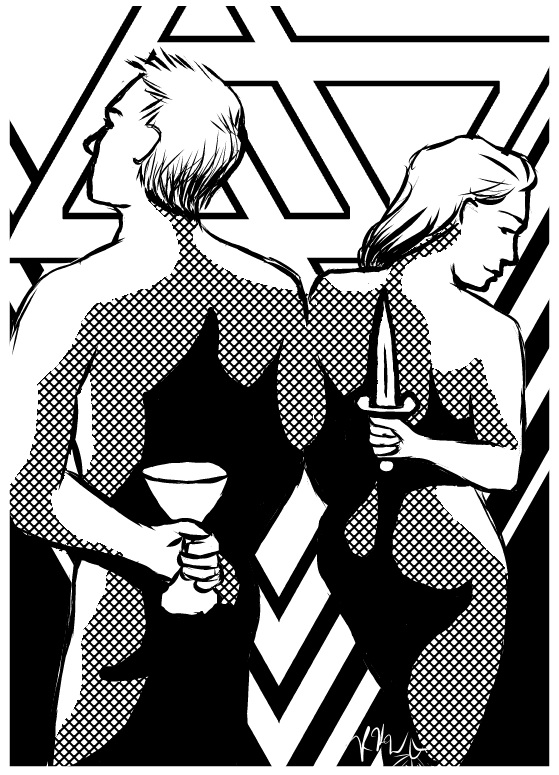
Fortunately for those who would have us admire these ancient failed egalitarian societies in the present day, the Aryan conquest hypothesis isn't true. The curious helplessness of Utopia's citizens, who consistently fail to defend their home turf against these packs of marauders far from their home bases, is remarkable. At the first appearance of the patriarchal conquerors, the egalitarian societies crumble and vanish like snow in the desert wind. In these tales, the Aryans always retain their superhuman qualities. If true, Eisler's narrative stands as a dire warning of the fate that awaits a society that abandons hierarchy, male dominance, and violence for egalitarian pacifism. It is, in fact, a version of the Aryan superman myth which was the founding legend of Nazi Germany. This narrative dates back to the nineteenth century. According to these writers, this idyllic agricultural society was put to the torch by invading Indo-European speakers armed with superior military technologies. The symbol of these villains is the titular blade.Įisler's book is a further development of the thesis advanced by the Indo-Europeanist Marija Gimbutas and the archeologist James Mellaart about a supposed unitary matrilineal and Goddess-worshipping culture that was claimed to be widespread throughout "Old Europe", in the Balkans, Anatolia, Crete, Malta, and the northeastern Mediterranean. These people were the nomads of the Eurasian steppes who first tamed horses and built the first wheeled vehicles. These people worship a male god or gods of war, vengeance, and honor.

In these societies, men rule by force, and women are oppressed.

Their symbol is the titular chalice.īut they are threatened by the forces of evil patriarchy, which is hierarchical, warlike, and based on dominance and submission. These societies once existed throughout early Bronze Age Europe.

This creates a wonderful society which is egalitarian, peaceful, and matrifocal, centering on nurture and worshipping a benevolent mother goddess. One was a "gylany", Eisler's neologism for a society in which relationships between the sexes are an egalitarian partnership. Human societies in prehistoric antiquity were of two kinds, according to Eisler.


 0 kommentar(er)
0 kommentar(er)
